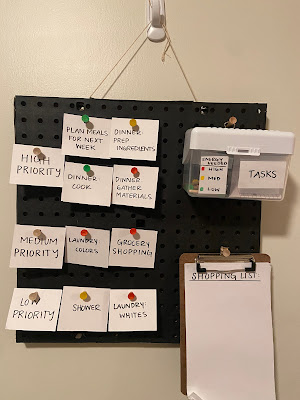Robert Goldfarb, Ph.D., is an aphasiologist, which is someone who explores language, speech, and swallowing problems. In 2013 while driving with his wife, Dr. Goldfarb experienced a sudden stabbing pain in his eye. By the time he pulled off the road and turned off the engine, he had lost control of his right side, and his speech became unintelligible, although his thoughts were clear. He suffered from dysarthria and right hemiparesis following a Transischemic attack or TIA. He has 9 more TIAs in the following days while staying in the intensive care unit (ICU). After being prescribed blood thinners to prevent a major stroke, he had one a day later. Doctors were concerned that he might have suffered from a brain stem stroke, increasing the likelihood of locked-in syndrome (LiS). People with LiS suffer from paralysis, including loss of most cranial nerve functions but remain cognitively the same as pre-stroke.
After some tests, doctors discovered that the stroke was likely caused by atrial fibrillation (or irregular heart beating). After atrial fibrillation stopped and the heart returned to a normal rhythm, the increased pressure in blood vessels would dislodge a clot and send it through the blood vessels until it clotted again, causing the mini strokes or TIA's. Following an MRA or Magnetic resonance angiography, an MRI focusing on the vessels in the body, Doctors also deemed no evidence of a brain stem stroke, a major relief for Dr. Goldfarb. Although he was relieved to not be at risk for locked-in syndrome, he still suffered from paralysis in his right arm and leg and face drooping.
Throughout his stay in the ICU, he describes feeling emotional incontinence or overflow. Once, he became irritated for days after seeing a muffin on a food service tray and being unable to eat it. Another time he could not help but weep when hearing his daughter's voice on the phone. He describes feeling emotionally and physically fatigued, which impacted his well-being and treatments. Physical exertion required during his physical therapy and occupational therapy treatment sessions left him so exhausted that his speech deteriorated. He also describes the feeling as if the therapists pushed him beyond the point where his muscles failed.
He was met with new stresses outside the rehab facility through insurance battles and hospital bills. The new finical burden became increasingly all-encompassing as coverage continued to be denied by his service providers. The transition home also brought with it the realization of his inability to complete tasks he had always done and the burden not doing them would have on his wife. As he improved, he felt increasing pressure in his relationship with his wife. Unsure of his ability to have sex, he and his wife tried to find ways to create opportunities for intimacy, but this still strained the relationship.
In more positive news, Dr. Goldfarb also describes some of the highlights of his rehabilitation process. One showed up independently after returning home to a modified bathroom similar to the one the OT apartment had at the rehab facility. Working towards something and doing it independently as soon as he got home made him feel empowered through his transition. He also talks about how meaningful the first time he and his wife were able to have sex felt after his TIA, showing that sex is just as meaningful as any other Activity of daily living to your client. The most impactful part of his story came at the end as he describes how he is currently dealing with life after a stroke. He said that following his stroke, he must now be careful and mindful while swallowing (as to not choke), walking (so he does not fall), and talking (so he does not slur his words), but with that comes the chance to live more in the movement. While he is mindful of his swallowing, he also enjoys food more than ever. As he minds his steps, he can enjoy more of his surroundings. Lastly, as he is careful in his speech, he chooses his words more carefully.
I learned so much from Dr. Goldfarb's story. Not only all facets of life that can be affected following a stroke, or the impact (positive or negative) Occupational therapists can have on a client's treatments, but also the power of seeking positives from any situation. Adapting one's life following an injury or illness does not have to feel like a loss if you do not want it to. Adaptation can just be a means to accessing a different experience. As a future OT, I hope to share that with my clients.
If you want to watch his Ted Talk.....
TEDxAdelphiUniversity. (2016). An Aphasiologist Has a Stroke . YouTube. Retrieved November 30, 2022, from https://www.youtube.com/watch?v=LLhXxBC9xYk.

Comments
Post a Comment